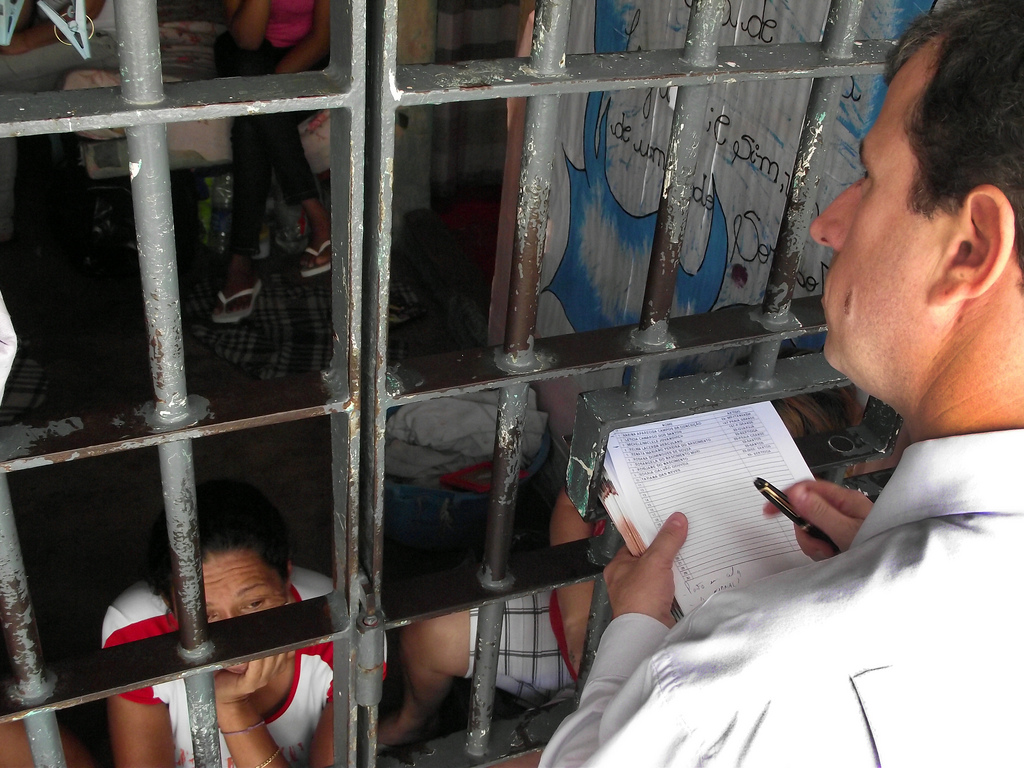Judicial independence under threat

Prison sentence enforcement judges, who are responsible for monitoring prisons and the sentences of prisoners, usually spend less time than they should with the people under their protection and rarely visit prisons. But what was already inadequate got even worse with São Paulo Law 1,208/2013, which centralizes their activities into just 10 points across the state, further increasing the distance between judges and the judged.
In an attempt to correct this situation, the ADI (Direct Action of Unconstitutionality) pending in the Supreme Court that challenges the law giving superpowers to the São Paulo State Court has been reinforced with an amicus curiae by Conectas and Pastoral Carcerária, the Catholic Church’s prisoner outreach service. The document, submitted on Thursday (December 18), provides the Supreme Court justices with an independent technical opinion on the subject which, in this case, supports the thesis forwarded by the Attorney General’s Office that the law approved by the São Paulo Legislature at the end of 2013 violates constitutional principles.
In practice, Law 1,208/2013 does away with the state’s Prison Sentence Enforcement Courts and replaces them with centralized departments for these judges. The organizations claim that these departments will distance the judges even further from the situation in the state’s prisons and from the prisoners themselves, in violation of the Prison Sentence Enforcement Law that provides for the control of the prison system by the justice system.
- Click here to see the amicus curiae presented by Pastoral Carcerária and Conectas.
“Monitoring by judges is one of the main tools for curbing human rights violations in prisons. Considering this is already unsatisfactory, physically removing the judges from the court districts is extremely irresponsible and poses a serious risk to the largest prison population in the country,” said Rafael Custódio, coordinator of the Justice program at Conectas. According to the latest report by the Ministry of Justice, from June 2013, the state of São Paulo currently has 207,400 prisoners (36% of the country’s total).
In addition to making it difficult to control the prisons, say the organizations, the new departments will be staffed by people appointed directly by the senior members of the São Paulo State Court. This violates the natural judge principle, which guarantees the impartiality of judges, and paves the way for the ideological control of court rulings. “As a result of the new law, a judge with a more progressive outlook on criminal law can be easily dismissed, which represents a threat to one of the main pillars of the democratic rule of law – judicial independence,” explained Custódio.
“ADI 5070 was the result of unprecedented cooperation between the Attorney General’s Office, the Public Defender’s Office, the Brazilian Bar Association, the São Paulo Public Prosecutor’s Office, the Association of Judges for Democracy and other civil society organizations. This clearly exposes the extent to which the initiative of the São Paulo State Court is an aberration from a legal point of view. The court and the state government are completely isolated in this case,” said Custódio. No date has yet been set for the Supreme Court to hear the case, which is still awaiting a decision by Justice Dias Toffoli on the request for an injunction to suspend these departments.


